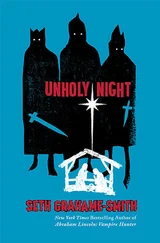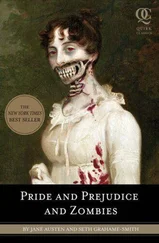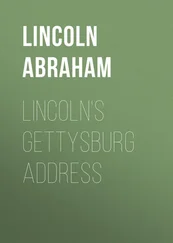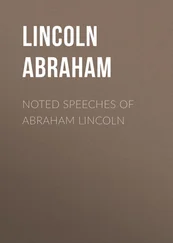The abolitionist had been attacked by a thirty-seven-year-old congressman named Preston Smith Brooks, a proslavery South Carolinian who’d taken offense at the Massachusetts senator’s mocking of his uncle in an antislavery speech two days earlier. On May 22nd, 1856, Brooks entered the Senate chamber accompanied by a fellow South Carolina congressman named Laurence Keitt and approached Sumner at his writing desk. “Mr. Sumner,” said Brooks, “I have read your speech twice over carefully. It is a libel on South Carolina, and Mr. Butler, who is a relative of mine.” Before Sumner had a chance to reply, Brooks began to beat his head with his gold-tipped cane, opening new gashes with each blow. Blinded by his own blood, Sumner staggered to his feet before collapsing. His victim now unconscious and bleeding, Brooks continued to strike until his cane broke in two. As horrified senators rushed to Sumner’s aid, they were held back by Keitt, who brandished a pistol and yelled, “Let them be!”
The blows fractured Sumner’s skull and vertebrae. He would live but wouldn’t be able to return to his Senate duties for three years. When South Carolinians heard of the attack, they sent Brooks new canes by the dozen. *
I am more assured than ever of my being wise to leave Washington, and more certain than ever that it is a repository of idiots—just as I am certain that we are now on a course for the “great calamity” Poe warned of those long years ago. One can see the masts of an angry fleet on the horizon, and every week seems to bring them a mile closer. If, as many think, it is the winds of war that fill their sails, then it is a war I am content to let others fight. My boys are healthy. My wife is in good spirits. And we are a long, long way from Washington. I am happy to make a speech or two; happy to lend my pen where it is needed. But I am happy. And happiness, I have decided, is a noble ambition. I have lost too much already, and have been a slave to vampires these thirty years. Let me now be free. Let me now seek the enjoyment of whatever time God may grant me. And if this peace be merely prelude to some peril or other, so be it. I shall enjoy the peace.

There was no shortage of passion or violence on either side of the slavery issue. Infuriated by the attack on Charles Sumner, a radical abolitionist named John Brown led an attack on a settlement at Pottawatomie Creek, in the Kansas Territory. On the night of May 24th, 1856 (just two days after Sumner was beaten), Brown and his men brutally murdered five proslavery settlers, dragging each man from his home, running him through with a sword, and firing a bullet into his skull for good measure. It was the first in a series of reprisals that would be dubbed Bleeding Kansas. The violence would continue for three years and claim over fifty lives.
On March 6th, 1857, the Supreme Court pushed the country closer to the brink.
Dred Scott was a sixty-year-old slave who’d been trying to win his freedom in the courts for more than a decade. Between 1832 and 1842, he’d traveled with his master (U.S. Army Major John Emerson) through the free territories of the North, acting as a personal valet. During these travels, Scott married and had a child (all on free soil), and upon the major’s death in 1843, tried to buy his freedom. But the major’s widow refused, continuing to hire him out and pocketing the wages for herself. Advised by abolitionist friends, Scott sued for his freedom in 1846, on the grounds that he’d ceased to be property the moment he’d set foot in free territory. The case worked its way through the courts, attracting national attention before finally reaching Washington in 1857.
In a 7–2 decision, the Supreme Court ruled against Scott, arguing that the Founding Fathers had considered Negroes “beings of an inferior order, and altogether unfit to associate with the white race” when they drafted the Constitution. Consequently, Negroes couldn’t be citizens of the United States, and couldn’t bring suit in federal court to begin with. They had no more right to due process than the plows they drove.
It was a devastating outcome for Scott, but it had implications far beyond his personal freedom. In issuing its ruling, the Court declared that:
Congress had exceeded its authority when it banned slavery from spreading to certain territories—and that these territories had no power to ban slavery on their own.
Slaves and their descendants (whether free or not) were not protected by the Constitution, and could never be United States citizens.
Escaped slaves who reached free soil were still the legal property of their masters.
In the wake of the Dred Scott ruling, the Albany Evening Journal accused the Supreme Court, Senate, and newly inaugurated President James Buchanan of being part of a “conspiracy” to spread slavery, while the New York Tribune ran an editorial that captured the fury of many Northerners:
Now, wherever the stars and stripes wave, they protect slavery and represent slavery…. This, then, is the final fruit. In this, all the labors of our statesmen, the blood of our heroes, the life-long cares and toils of our forefathers, the aspirations of our scholars, the prayers of good men, have finally ended! America the slave breeder and slaveholder!
Southern Democrats were more emboldened than ever, some boasting that the ruling would lead to “slave auctions on Boston Common.” Republicans and abolitionists had never been more electrified in their opposition. America was beginning to tear itself apart.
But few Americans knew just how much danger they were really in.
III
On June 3rd, 1857, Abe received a letter addressed in a familiar scrawl. It contained no inquiries after his health or happiness; no regards to his family.
Abraham,
I beg you forgive my failure to write these five years. You must also forgive my abruptness, for matters here require my urgent attention.
I must ask another sacrifice of you, Abraham. I realize how presumptuous a request it must seem given all that you have suffered, and what little enticement I can offer against the contentment of home and family. Trust that I would not burden you unless the situation was dire, or if there were any other man capable of what I ask.
I have enclosed everything necessary to your swift passage to New York. If you are willing, then I beg you come no later than 1st August. Further instructions will be delivered upon your arrival. However, if your answer is no, I shall not bother you again. I ask only that you write at once with your refusal, so that we may consider a new strategy. Otherwise I look forward to our reunion, old friend—and to giving you the explanation you have long deserved.
It is time, Abraham.
Ever,
—H
Enclosed were various train and steamboat schedules, $500, and the name of a boardinghouse in New York City where a room had been rented under the name A. Rutledge.
Oh, how [the letter] annoyed me! Henry was clever indeed—for though he claimed to have little enticement to offer, every word was designed to entice: the self-censure; the flattery; the promise of an explanation—even the name left at the boardinghouse! That he would have me abandon my affairs, my family, and cross a thousand miles without so much as an intimation of the purpose!
And yet I could not refuse.
And this was more annoying than the letter itself, for Henry was right. It was time. Time for what, I knew not. Only that the whole of my life… the suffering, the errands, the death… that it had all been leading to something more. I had felt this, even as a child—the sense that I had been placed on a long, straight stretch of river from which there could be no deviation. Carried ever faster by the current… surrounded by wilderness on both sides… destined to collide with some unseen object far, far downstream. I had never spoken of this feeling, of course, for fear of being thought vain (or worse, being proven wrong—for if every young man who was assured of his future greatness was proven correct, the world would be brimming with Napoleons). Now, however, the object was beginning to take shape, though I could not yet make out its features. If a thousand miles was the price of seeing it clearly at last, then so be it. I had traveled farther for less.
Читать дальше













